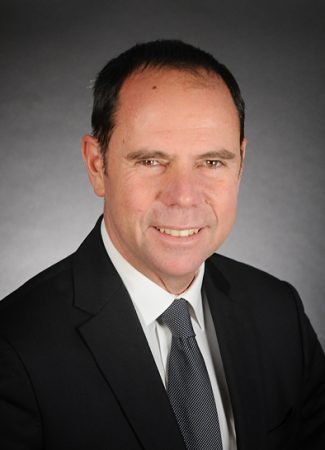At the time of writing this article, news on the pandemic are heartbreaking: hundreds of thousands of people affected, dozens of thousands deceased, planetwide confinement, lack of health resources to tackle the virus, crisis in multiple activity sectors, worldwide recession, etc. It seems that the peak of the contagion has already been reached in some countries. However, in some others, the tipping point cannot be discerned yet. We are coming across some prospective articles which predict the “day after” and which aren´t much more encouraging either. Perhaps the fact that we are starting to talk about the future is already in itself a good sign, in that we are beginning to overcome the health crisis and starting to worry about some other issues…
If we focus on the energy sector, we have witnessed some unprecedented situations: a 25% drop in nominal electricity demand in Italy; oil prices not seen since 2002; power futures contracts down by 40% in one month; negative prices for gas spot contracts in the US; emission certificates (EUAs) nearing the 15€/Tn mark, …
Deep down, we are all asking ourselves the same question: will the COVID-19 crisis deeply affect our future or is this just an unfortunate conjunctural situation?
Back to the energy context, I believe it´s worth analysing the market signals and distinguish those that are attributable to COVID-19 from other potential causes, the latter ones likely being linked to fundamental reasons as opposed to sheer speculation or overreaction of the markets in the light of current events:
- The fall observed in oil prices seems to be more related to the ongoing battle between Saudi Arabia and Russia, with US shale oil as an additional underlying factor, than to the contraction of worldwide demand. Had the OPEP+ cartel behaved in the same way it normally does, prices would still lie around the 50$/bbl mark. Once the scores are settled between “cartels”, things will get back to normal.
- Negative prices of US spot gas contracts are linked to the inability of stopping some gas production in the context of low demand combined with a glut of gas storage. These significantly low gas prices worldwide can be explained as the result of a decrease in Asian demand due to a mild winter rather than to the COVID-19 effect, although the latter has, without any doubt, increased gas surplus, an excess which couldn´t find its way out in the EU for the very same reasons. Add to this falling Brent prices, and we can easily understand the collapse of gas prices in recent months.
- The evolution of EUAs prices, i.e. CO2 emission certificates, which had moved from approx. 25€/Tn to 15€/Tn, can be linked to the interpretation made by the markets on the COVDI-19 effects (overreaction) and to fears of an imminent recession of the economy. Besides, EUAs prices are quickly recovering and are currently set at above the 20€/Tn mark.
- The drop in electricity demand in those countries subject to very strict confinement policies cannot be argued. Still, it would be advisable to allow for some additional time to evaluate the impact of COVID-19 so as to not confuse it with climate or seasonal related changes. The 25% decrease in nominal demand registered in Italy corresponds to something in the region of 15% under iso-temperature and seasonal conditions. By way of comparison, and during the deep crisis following 2008, Italy, which was particularly affected, showed a decrease of its annual electricity demand of ‘just’ 9%. Electricity is a basic need and its demand is very inelastic – in our view, reductions by more than 10% are unsustainable over time.
- For its part, 1-yr term power futures (Cal 2021) have followed the path set by gas and CO2: a dramatic fall during the last month followed by a sudden recovery in the two last weeks. The explanation for this swing can namely be found in the underlying CO2. Besides, and more specifically linked to COVID-19, certain delays in maintenance operations of the French nuclear power fleet seem to be confirmed, resulting in an increase of unavailability of some reactors.
Without wanting to go into too deep an analysis, we want to warn our readers not to get swept up by the current feeling of panic. We advise them to decode the various market signals in order to avoid misinterpretations. And, should they need to take any immediate decisions during this time of uncertainty, we recommend seeking advice from reliable specialists capable of interpreting reality beyond the headlines in the news.
Notwithstanding the above, there is no doubt that COVID-19 is inevitably leading us to a recession no one is capable of evaluating. The big question – which will determine the magnitude of the disaster – is how long it will take us to get out of our confinement and when will we be back on the path of growth. Obviously, we shall not dare to give an answer in this article. Even the wisest economists are discussing whether it will be a “V” or a “U”. Some are even forecasting a “W” due to potential relapses of the pandemic.
As for us, we are optimistic and convinced that there won´t be a major crisis, and that the situation will get back to normal in a relatively short period of time (we are betting on a “V” recovery). We cannot see any major reason why we shouldn´t get quickly back to an offer-demand equilibrium similar to the pre-crisis situation. Under such a scenario, the energy sector would suffer some delays in its transformation, losses depending on each actor´s exposure to the market but, in all, nothing substantial or final.
By contrast, if the economic crisis turns out to be deeper, things could change in a more radical way. The climate emergency we are currently living in could give way to an economic emergency. Development plans for renewables and efficiency could be displaced by some expansionist plans less concerned about climate. The transformation of the energy sector would come to a standstill. From an even more extremist point of view, we could see some essential sectors of the economy being intervened by governments, such as the energy sector… So far, we certainly don´t see any reason to believe in this catastrophic and post-apocalyptic scenario.
I wouldn´t want to finish this article without conveying a note of optimism. The COVID-19 crisis confronts us with the fragility of our way of living. Just when we thought everything was under control and that only distant and intangible elements (such as Climate Change) posed a risk, we come across something unknown and immediate. Faced with this threat, efforts are being made worldwide to an extent never seen before. With measures such as confinement, economic welfare has been sacrificed in order to save lives, which is a novelty, too. We all hope that this crisis will be overcome as was the case with some others faced in the past and that, despite the terrible human damage. I am convinced we will soon leave this crisis behind and that, when looking back at it in a few months’ time, it will look just like a nightmare. Bon courage!
Antonio Haya






